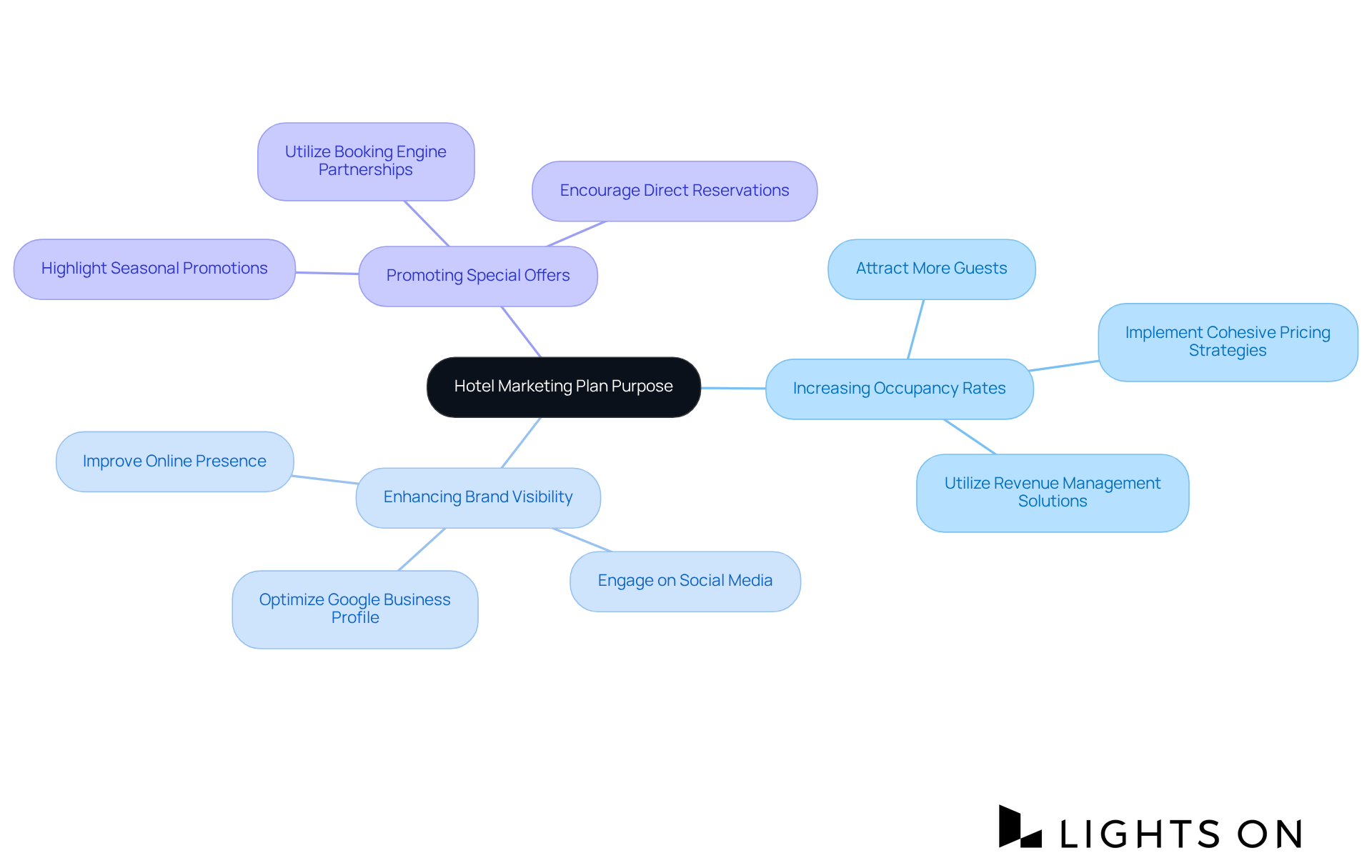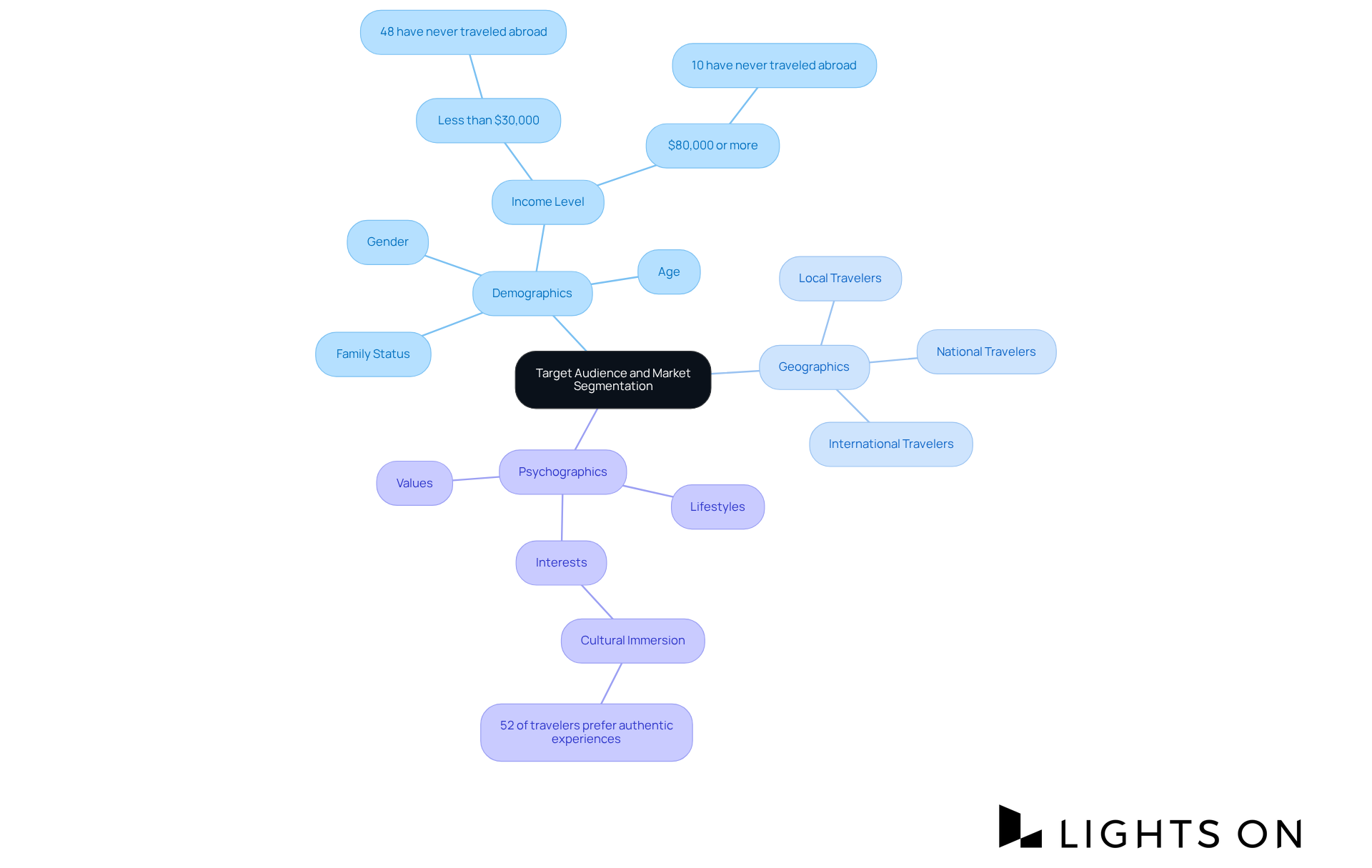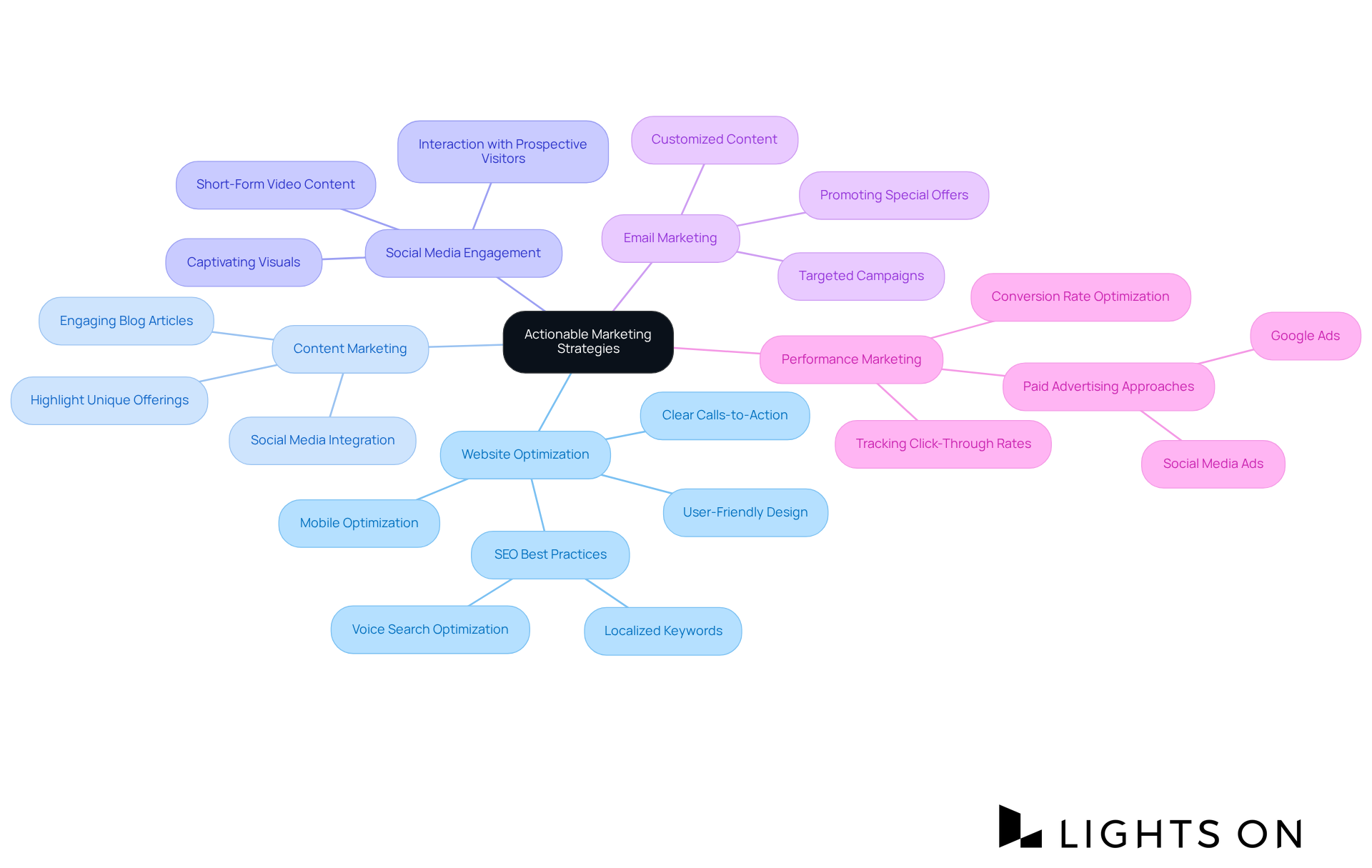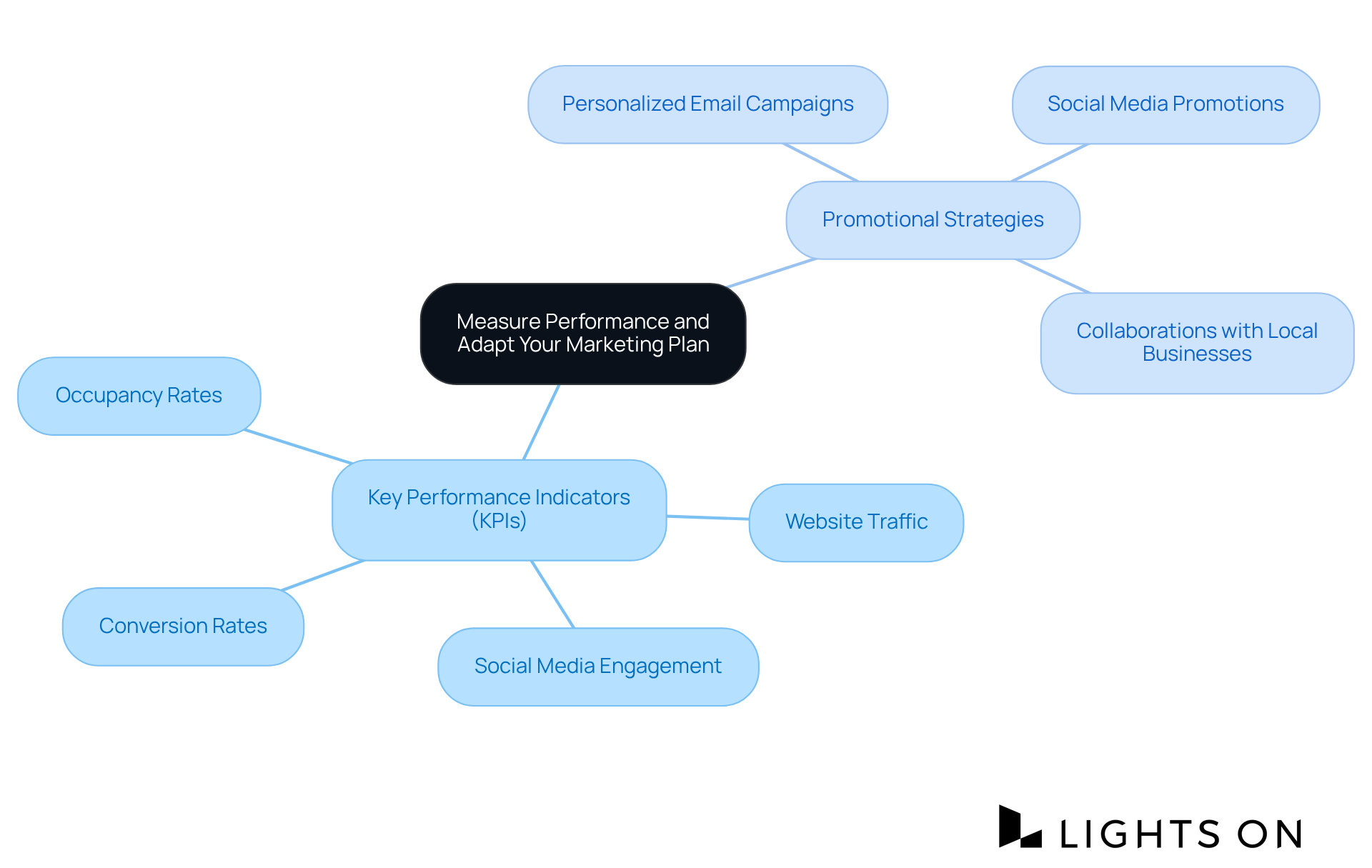An effective marketing plan in hotel management begins with a clear definition of objectives, the identification of target audiences, and the development of actionable strategies that resonate with potential guests. This approach addresses a critical problem faced by many in the industry: how to effectively engage and attract guests. Furthermore, aligning marketing efforts with measurable goals, such as increasing occupancy rates and enhancing brand visibility, is paramount.
Incorporating strategies like website optimization and social media engagement not only drives results but also fosters a deeper connection with potential customers. In addition, utilizing data-driven insights and industry-specific terminology establishes credibility and reinforces the importance of these strategies in achieving success.
Crafting a successful marketing plan in hotel management is not merely a strategic necessity; it serves as the cornerstone for achieving sustained profitability within a competitive landscape. By clearly defining objectives—such as increasing occupancy rates, enhancing brand visibility, and promoting unique offerings—hotels can adeptly tailor their marketing efforts to resonate with targeted audiences.
However, a pressing challenge persists: how can hotel managers effectively navigate the complexities of market segmentation and performance measurement to ensure their strategies yield the desired results?
This guide delves into the essential steps for creating an impactful marketing plan that aligns with business goals while adapting to the ever-evolving demands of the hospitality industry.
To create an effective promotional strategy, it is essential to clearly define its purpose. Start by identifying what you aim to achieve with your marketing efforts. Common objectives include:
Once you have identified your primary goals, document them. This will act as a guiding framework for all following plans and tactics you create, ensuring alignment with your overall business goals.

To effectively identify your target audience, segment the market using various criteria.
Utilize tools such as surveys, social media analytics, and market research to gather valuable data. Developing comprehensive buyer personas that embody your ideal customers will guide your promotional messages and the platforms you select to connect with them efficiently. This approach not only enhances engagement but also increases the likelihood of conversions by aligning your offerings with guest expectations.

Creating an effective marketing plan in hotel management requires the development of actionable strategies that resonate with your audience and drive results.
Each strategy should include specific tactics, timelines, and designated team members to ensure accountability and measure success.

To effectively assess the performance of your promotional efforts, it is essential to establish a robust system that focuses on key performance indicators (KPIs). These KPIs should encompass:
as they provide critical insights into your promotional effectiveness.
Utilize , social media insights, and email performance metrics to track these indicators. For instance, a hotel that invests in targeted digital campaigns can experience a significant increase in its occupancy rate; Binn Hotel, for example, improved its occupancy from 58% to 82% in just four months through strategic digital initiatives.
In addition to monitoring these metrics, consider adopting specific promotional approaches such as:
to enhance your visibility. Regularly reviewing your marketing plan in hotel is crucial to assess its effectiveness. Schedule these reviews to determine which approaches yield results and which require modification. If you notice low social media engagement, it may be time to adjust your content strategy or increase your advertising budget. Flexibility is vital; adapting your strategies based on data insights will enable you to remain responsive to market changes and evolving guest preferences.
As Tom Brown emphasizes, tracking KPIs empowers hotel owners to analyze performance and make informed decisions for improvement. By concentrating on these metrics and integrating actionable strategies, you can ensure that your marketing efforts align with your business objectives and drive sustainable growth.

Creating an effective marketing plan in hotel management is not just important; it is a vital process that drives success in a competitive industry. By clearly defining the purpose of the marketing plan, identifying target audiences, and developing actionable strategies, hotel managers can significantly enhance their establishment's visibility, occupancy rates, and overall profitability. The central theme revolves around aligning marketing efforts with business objectives to create a cohesive and effective promotional strategy.
This article highlights essential components such as:
Each of these elements plays a crucial role in crafting a comprehensive and successful marketing plan.
Ultimately, the significance of an effective marketing plan in hotel management cannot be overstated. It serves as a blueprint for enhancing guest engagement, driving bookings, and fostering long-term loyalty. By continually measuring performance and adapting strategies based on data insights, hotel managers can remain responsive to market changes and guest preferences, ensuring sustained growth and success in an ever-evolving hospitality landscape.
What is the first step in creating a hotel marketing plan?
The first step is to clearly define the purpose of your marketing plan by identifying what you aim to achieve with your efforts.
What are common objectives for a hotel marketing plan?
Common objectives include increasing occupancy rates, enhancing brand visibility, and promoting special offers.
How can increasing occupancy rates benefit a hotel?
Increasing occupancy rates can significantly enhance revenue, as higher occupancy directly correlates with increased profitability, especially during off-peak seasons.
Why is brand visibility important for hotels?
Improving brand visibility is essential because 75% of travelers start their accommodation search on search engines, and 53% of Gen Zers use social media for travel inspiration.
What role do special offers play in hotel marketing?
Promoting special offers can attract prospective visitors and boost reservations, as engaging material highlighting these offers sets a hotel apart from competitors.
How can direct reservations impact profitability?
Direct reservations lead to higher margins, improved client data, and greater opportunities for long-term loyalty, which can enhance overall profitability.
What should be done after identifying marketing goals?
Once marketing goals are identified, they should be documented to serve as a guiding framework for all subsequent plans and tactics, ensuring alignment with overall business goals.
Transform your group booking strategies with Lights On and watch your occupancy soar.